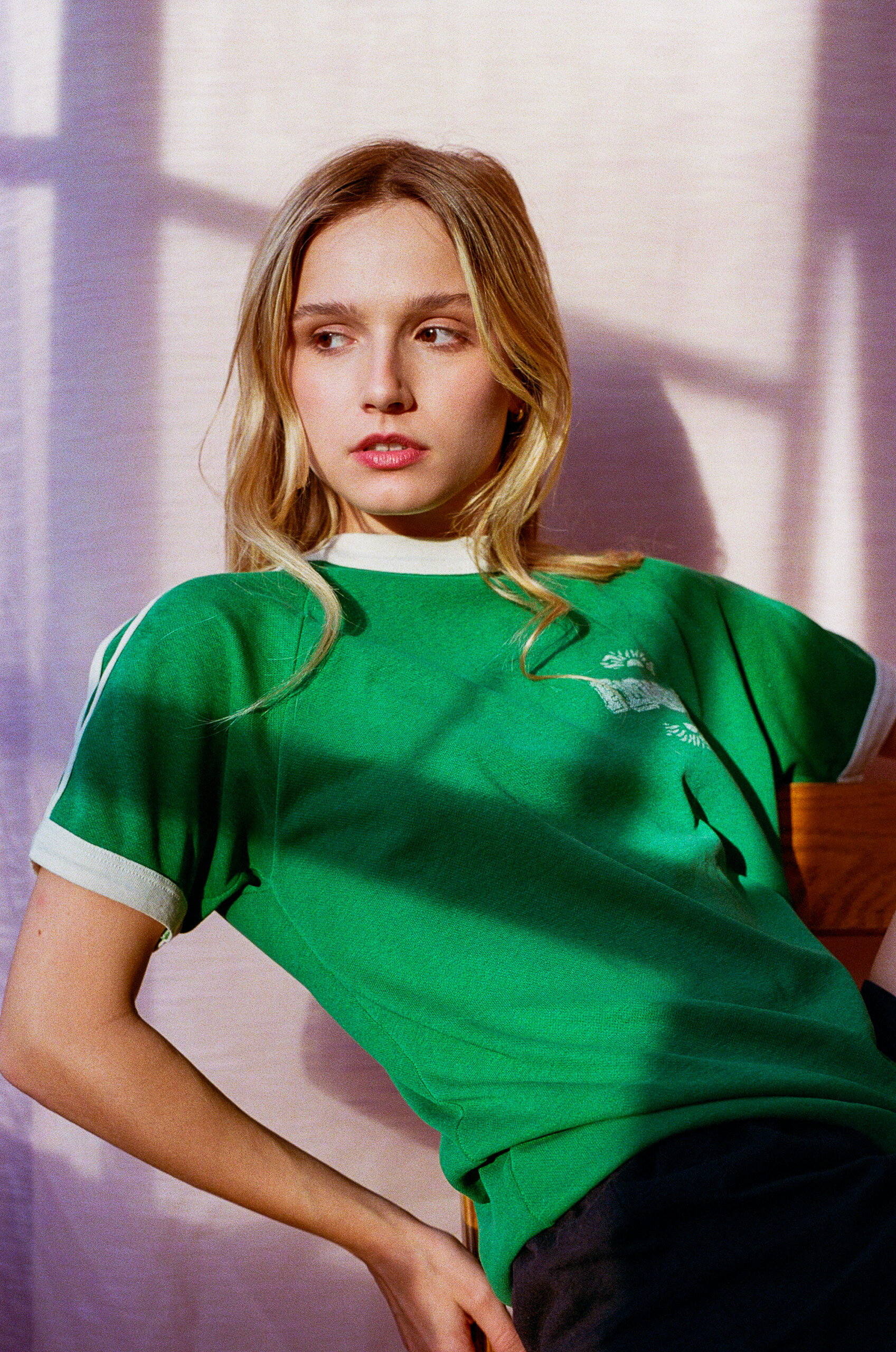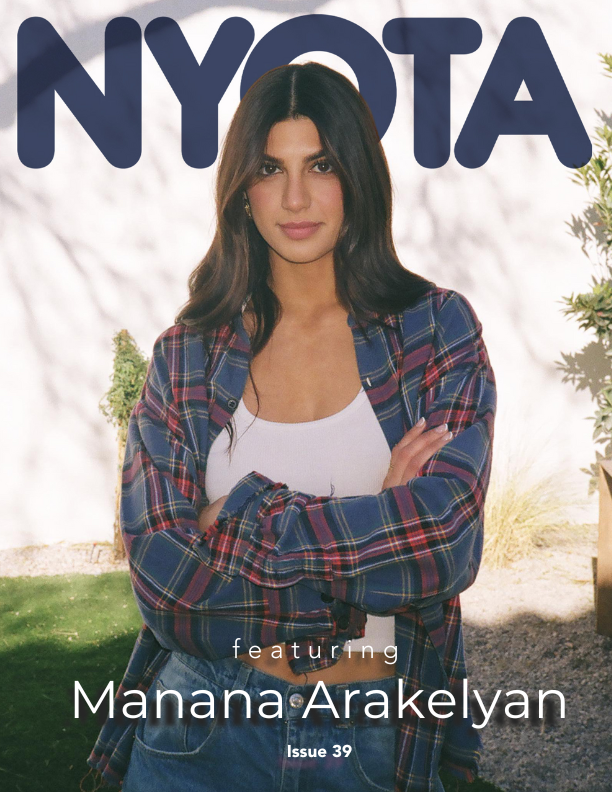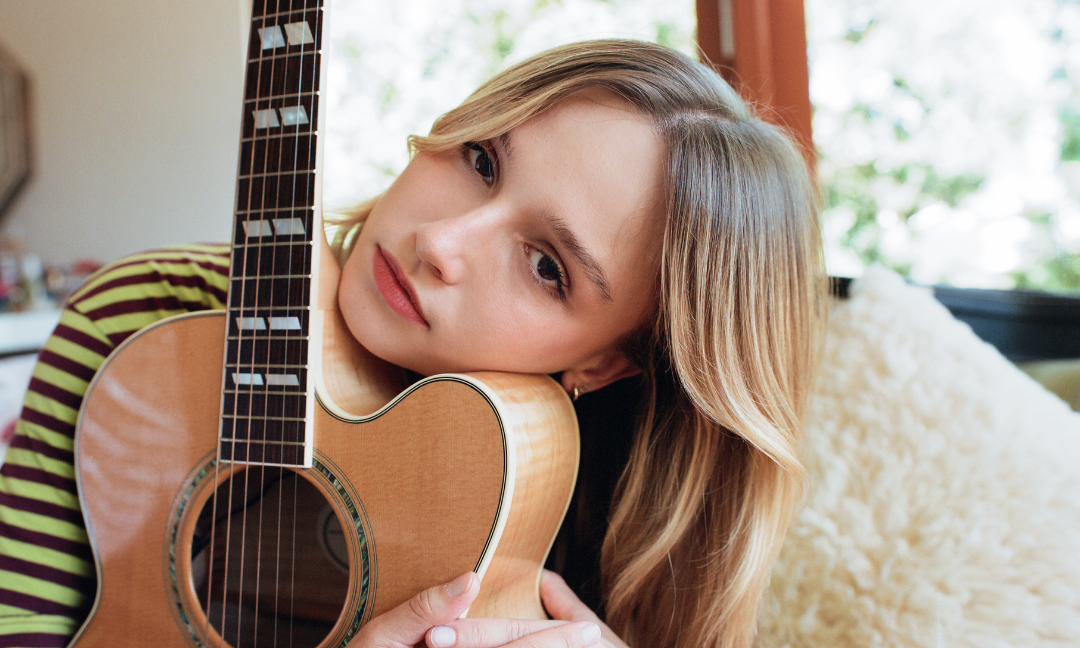Interview by Carol Wright | Photographer(s): Lauren Leekley, Reese Layton
Hailing from Los Angeles, Diva Smith was surrounded by music from a young age, whether through guitar and piano lessons or attending live shows. However, it wasn’t until she moved to New York for college that she truly discovered her love of songwriting. Smith talked to NYOTA about her single “Better In Heaven,” performing at venues across the city and being her authentic self online.

Learning the piano at age eight and the guitar by 10 means you must have developed an appreciation for music at a young age. Do you remember creating any songs when you were young, even if they were lyrically nonsensical?
I’ve always loved writing, but I didn’t really put the stories to music until I was much older. I treated my guitar and piano lessons as a separate thing. When I tried to write songs, I found it frustrating and isolating. I’d sit and overthink every melody and word. Once I started collaborating with other people, I was able to come out of that. Just having another person in the room to say, ‘That sounds good, keep going,’ is so helpful and has completely reignited my creative process.
You grew up in Los Angeles and now live in New York, both of which are arts and culture hubs. How has the move to New York impacted your creative process? Do you have particular spots in the city where you like to write and feel inspired?
I really feel that I owe my love for songwriting to New York. Growing up in LA, I was surrounded by culture, and I saw a lot of live music from a young age, which definitely impacted me. But when I moved to New York City for college, I felt this deep sense of independence I had never experienced. I remember sitting on my dorm room bed one day and I picked up the guitar and started writing a song— I had never done that before. I got through a verse and a chorus. I remember leaving that moment and being so excited by songwriting for the first time. It felt like a huge turning point for me.
Last year, you performed across New York in venues like The Mercury Lounge and The Bowery Electric. Does it help to see how a live audience reacts to songs before you officially release them?
I’m learning so much about myself through performing. It’s been so fun to play my songs and see what resonates with people, as well as to see what songs I enjoy performing most. I am somewhat new to performing, and it’s taken a bit of getting used to. I can now say that I’m really enjoying it. All of the shows I’ve played have made me really excited to have more music out— I can’t wait for the day when there’s a person I don’t know singing my lyrics back at me.
I love the line “We fall apart until we grow again” in your single “Better In Heaven.” Do lessons you learn through relationships and different life moments tend to be reflected in your music?
When I’m going through a difficult time, I always find comfort in knowing it can become a song. There is no greater feeling than having an experience, good or bad, putting it into a song, and finishing that song. It’s the greatest form of catharsis for me.
Creating music is a collaborative process, and you work with a woman-fronted team of producers and engineers. Due to this, has it been easier for you to be vulnerable during the song-creation process?
Definitely. That is the main reason I choose to surround myself with women. I find that there is often an unspoken understanding between women, a shared experience that we can only understand with each other. Every songwriting session I have tends to start with a big therapy session, where I ramble and talk about what’s been going on in my life. It’s incredibly important for me to feel safe enough in an environment to do that. Without that, I couldn’t make music.
A large part of a musician’s journey is figuring out how they will present themselves visually, and you have a very distinct sense of style. When you’re performing, do you almost feel like you’re putting on a persona, or is it a natural extension of yourself?
At this point in my career, I really try to be a natural extension of myself on stage. I use my music as a way to process my emotions and learn more about who I am, and I want this to come across when people hear it. The artists I relate to most are the ones that are unapologetically honest and raw, especially in their lyrics— that’s my goal at this moment in my career.
Social media plays a large part in a modern musician’s career. How do you balance developing an online following while not letting any commentary affect your artistic process?
I’ve always had a love-hate relationship with social media. It’s such an amazing way to express yourself, to share who you are and your experiences, but it’s also a breeding ground for comparison in my experience. The only way I feel comfortable and confident online is when I know I’m being my authentic self. I try to limit my time scrolling, and utilize my profiles for expressing myself and giving my listeners a greater understanding of my music.
What advice do you have for aspiring musicians?
Find community. This career is hard to do alone, especially when you’re prone to overthinking and perfecting your craft. Finding collaborators and a community in NYC has been life-changing for me— especially in the live scene. The more I play shows and see shows, the more I feel like I’m a part of something greater. I feel very lucky to live here and get to experience that.
This story first ran in Issue 39: The Digital Issue. Read more from the issue here


